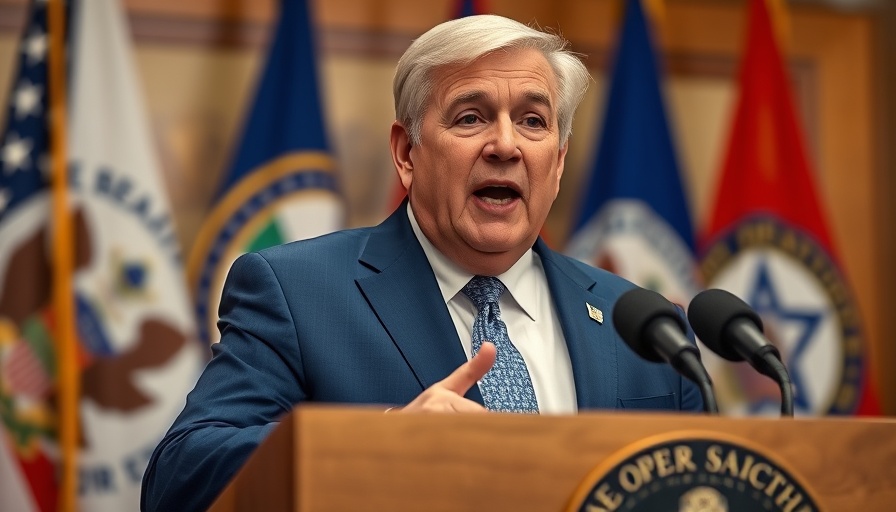
The Shocking Move: RFK Jr.'s Decision to Remove Vaccine Advisors
In a surprising twist within the public health arena, Health Secretary Robert F. Kennedy Jr. has recently announced the removal of all 17 members from the Advisory Committee on Immunization Practices (ACIP). His move, defended in an op-ed published in the Wall Street Journal, is being scrutinized as evidence of dishonesty under oath during his confirmation hearing. Kennedy asserted that without these drastic changes, the Trump administration would be unable to appoint a majority of new members until 2028. This reasoning, however, has not quelled the outrage of many concerned citizens and public health advocates.
Public Outcry: Allegations of Perjury
The reaction to Kennedy's firing of the vaccine advisory committee members has been swift and fierce. Social media platforms are buzzing with accusations that he lied during his confirmation hearing, where he explicitly stated his intentions to maintain the integrity and expertise of ACIP. One user pointedly declared, “Let’s play RFK’s confirmation testimony where he swore this was not his plan,” thereby calling into question the very trust that is vital for public health leadership.
Health Experts Weigh In: The Role of Vaccines
In the realm of public health, vaccines are considered one of the most significant advancements in modern medicine. They have saved countless lives and contributed to the eradication of diseases. Experts are concerned that Kennedy's actions could undermine years of efforts to promote vaccination and manage public health crises. With some labeling him as “unqualified” for his role as Health Secretary, the sentiment that he is intentionally harming Americans is growing stronger.
The Importance of Transparency in Health Leadership
Leadership in public health requires transparency, particularly in matters so crucial to the safety and well-being of the population. When a leader breaches trust by seemingly acting against their sworn statements, it raises questions about their integrity and the ramifications of their decisions on public health policy. This scenario opens up a broader discussion about the need for accountability among public health officials.
Social Media as a Reflection of Public Sentiment
The role of social media in shaping public opinion cannot be underestimated. The anger directed at Kennedy showcases the power of collective voice in health matters. Users have turned to platforms to express their fears about how his leadership may jeopardize health advancements. This interaction highlights a crucial aspect of modern governance: the impact of digital communication on political accountability and decision-making.
Exploring the Future of Vaccine Policies
As the country navigates through vaccination hesitancy and policy-making, the future of vaccine policies hangs in the balance. Kennedy's recent actions call for a reassessment of how advisory committees are structured and the constraints on leadership's influence over critical public health discussions. Understanding these dynamics could foster stronger policies that benefit the entire community and ensure that public health remains a priority.
What It Means for You: The Crucial Nature of Informed Decisions
For everyday citizens, understanding the implications of these decisions is essential. As vaccinations continue to play a role in health outcomes, it’s vital to engage in informed discussions and remain vigilant about changes in public health leadership. Being equipped with knowledge enables individuals to advocate for research-based practices while also considering personal health choices.
Actionable Insights: Staying Informed and Engaged
Remaining informed about vaccine policies and public health measures is more important than ever. Follow trusted health organizations, participate in community health dialogues, and keep abreast of legislative changes. Advocating for transparency and accountability in health departments empowers communities to make healthy choices and supports overall well-being.
 Add Row
Add Row  Add
Add 




Write A Comment